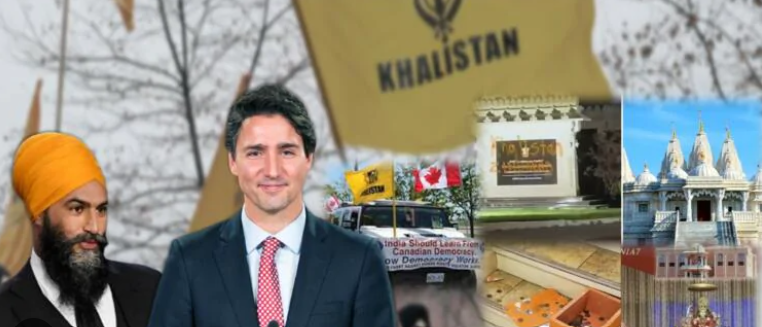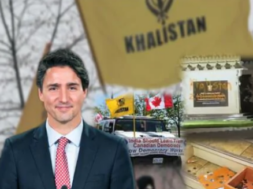
Roving Periscope: Overwhelmed by immigrants, Canada tries a course-correction
Virendra Pandit
New Delhi: With its reckless pro-immigration policy almost ‘destabilizing’ the politico-economy and the society in the sprawling North American country because of fast-changing demographics, soaring inflation, social unrest, and the angry natives reportedly bracing to throw out the Justine Trudeau government in October 2025, Canada has rushed to do some mid-stream course correction.
In a severe blow to the foreign dreams of many, especially aspirants from Punjab and Haryana, Canada put a two-year cap on student visas, although it will dig a big hole in its kitty. Canada is set to lose some USD 80 billion a year!
Of the eight lakh immigrant ‘students,’ over 40 percent came from India alone in 2023, mostly from Punjab and Haryana, the media reported.
Canada’s change in study visa rules has come against the backdrop of its sour diplomatic relations with India. In September 2023, Prime Minister Justin Trudeau accused the Indian agencies of killing a Sikh separatist Canadian citizen Hardeep Singh Nijjar, leading to a series of diplomatic moves affecting both the countries. Canada’s ‘pro-Khalistan policy’ is a direct result of its reckless immigration intake which has changed demographics in many areas and forced Trudeau to depend on the political support from separatist Sikh groups.
The changed immigration policies of Canada will not only affect lakhs of students but also thousands of professionals offering consulting services in sectors like education, the media reported.
On Tuesday, Canadian Minister for Immigration, Refugees, and Citizenship (IRCC) Marc Miller, during a press conference in Ottawa, admitted that international students are a critical part of Canada’s social, cultural, and economic fabric but, in recent years, the integrity of the international student system has been threatened.
“Some institutions have significantly increased their intakes to drive revenues and more students have been arriving in Canada without the proper support they need to succeed. Rapid increases in the number of international students arriving in Canada also put pressure on housing, health care and other services.”
The two-year cap would lead to a 35 percent overall reduction in new study visa permits this year and around a 50 percent decline in Ontario province alone, where the bulk of students were heading to the so-called “colleges.”
Even in 2023, Canada had increased the Guaranteed Certificate Limit (GIC) amount, a mandatory requirement for a study visa permit from Canadian Dollars (CAD) 10,000 to CAD 20,635. To Indians, it meant more than doubling of the fee from Rs. 6 lakh to Rs 12.58 lakh. This directly increased the overall study visa expenses to almost Rs 30 lakh per head.
A major reason behind this decision was the housing crisis and inflation in Canada, making it difficult for immigrants to sustain themselves. Still, Canada remained the most sought-after country among students in Punjab because it offered a Permanent Residency (PR) option within three years.
A reckless migration of Indians to Canada also meant a flight of capital from the South Asian nation to the North American country.
According to a study on Overseas Migration from Rural Punjab: Trends, Causes, and Consequence, conducted between 2021 and 2023 by the Punjab Agricultural University (PAU), Ludhiana, about 56 percent of households borrowed money to send their children abroad. Canada was the first choice among applicants, followed by Dubai and Australia.
The study found that Punjabis sold assets worth Rs 5,636 crore and borrowed Rs 14, 342 crore to send their children abroad. On average, a family in Punjab spends around Rs 18 to 25 lakh on a study visa and up to Rs 4 lakh on other visas, including those moving to Dubai on work visas in the Middle East. Nearly 71.88 percent of these migrants were engaged in agriculture in Punjab.
For 2024, the cap is expected to result in 3,60,000 approved study permits, a decrease of 35 percent from 2023. Study permit renewals will not be impacted. Those pursuing master’s and doctoral degrees and elementary and secondary education are not included in the cap.
In the third quarter of 2023, Canada’s population grew at its fastest pace in six decades. Over eight lakh foreign students were in the country in 2022, up from 2.14 lakh a decade earlier. Opinion polls show that Prime Minister Justin Trudeau would lose the election if it were held now. His government is under pressure to address the unaffordable housing crisis, linked to a spike in immigration.














